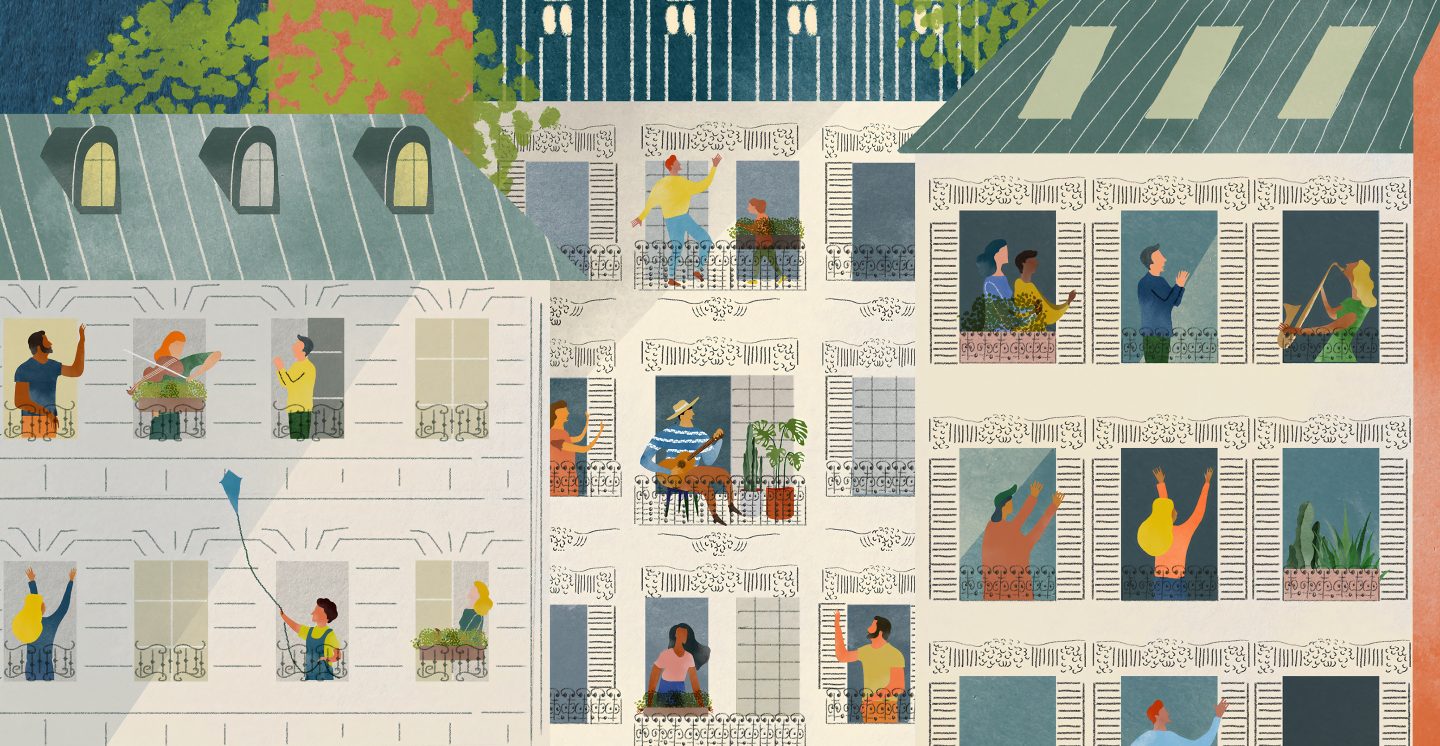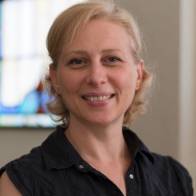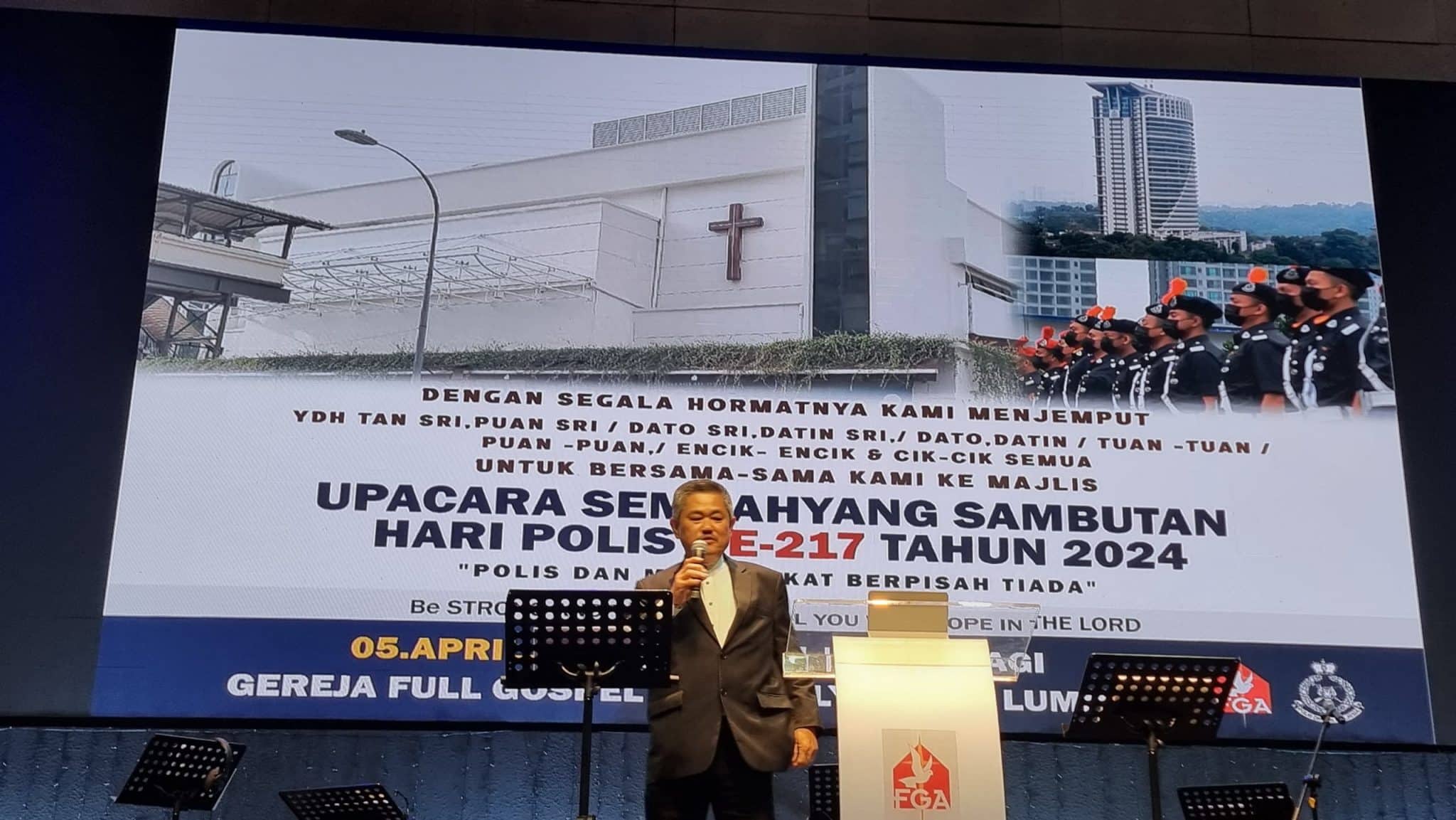
"Something transcendent takes place when ordinary humans let their small, restless hearts be seen. Even while we’re grieving and anxious, we can dance. Even when we’re lonely, we can whistle against the silence," says Ps Mandy Smith on living out the hope of Christ in times of crisis. Photo by United Nations Covid 19 Response on Unsplash.
Last week was pretty dark for me.
I believe God can make all things new but I’m not seeing it. When I look at the news, I just see death rates. When I look at the economy I see plummeting figures. When I look at my calendar I see cancelled plans. When I talk to others they’re also tired, grieving, overwhelmed, ready for something different.
Colossians 1 calls us to “endure everything with patience, while joyfully giving thanks to the Father” (Colossians 1:11). I don’t know about you, but to me that seems like a lot to ask right now.
Hope from a prison cell
But Christian endurance doesn’t mean pretending everything’s okay and soldiering on. In Colossians, Paul also reminds us of the hope stored up for us in heaven. This is not just a wishful thinking kind of hope. Or a hope that we only see in some vague, distant future.
Christian endurance doesn’t mean pretending everything’s okay and soldiering on.
As Christian poet Pádraig Ó Tuama puts it: “The answer’s in a story and the story isn’t finished.”
Certainly, if our story ended now, it would be a tragedy — we’re still living in isolation, our gatherings are still canceled, the future shape of our lives is still in question. But our story isn’t finished.
We have to remember that this hope Paul gushes about in Colossians is a hope he’s experiencing in a Roman prison cell. His crisis has not yet been resolved and yet, even in it, he rejoices! Why? How?
Thankfully, Paul goes on to unpack his hope: We have hope because we are already rescued from the power of darkness and have already been transferred into the Kingdom of God’s beloved Son. Hope is where we live.
We can have hope because Jesus is over and above all powers — visible and invisible. He is before all things, and in him all things hold together (Colossians 1:17). Hope is a person who is not afraid of, or surprised by, our current crisis.
This hope Paul gushes about in Colossians is a hope he’s experiencing in a Roman prison cell.
And we can have hope because this fullness of God that was in Jesus is also in us — already, now. This Christ who is the image of the invisible God, the firstborn of all creation, who reigns over all things, also dwells in us. Hope lives in us.
It may be hard to see, to believe, to feel. But we endure by once more choosing our story.
Certainly, the way Scripture interprets reality is hard to embrace when so many other interpretations are clamouring for our hearts and minds.
These other stories tell us the future is only bleak, that we’re only defined by our ability to understand and to control. It’s easy to believe the church is overcome, we are forsaken, there is no hope.
These temptations are real and at the same time, we can choose to endure by remembering our story — that Jesus promises both that in this world we will have trouble and that he has overcome this world.
“That’s where things get born — somewhere between loss and hope.” (Timothy Carson)
Squeaks and wrong notes
So in the middle of that despair last week, I found myself watching videos of flash mobs. We love those transcendent moments when we can feel part of something bigger than ourselves, like getting wrapped up in an impromptu dance scene in an old musical where somehow everyone knows the steps.
In some way, this is what we enjoy every Sunday morning — the music and the word and the gathered people of God all coming together and making something ordinary and transcendent.
As I watched a video of a pop-up parade flash mob, I longed for a pop-up parade on my street, to hear the music, to see the joy in human faces, even if the marchers had to do so six feet apart. And then I felt a strange prompt – you could start your own one-person parade!
“That’s where things get born — somewhere between loss and hope.”
My usual response was at the ready: “What if I look stupid?”
To which Lord responded: “What if it makes someone’s day? Draws them out of their despair? Creates a moment of transcendence?”
I’m not an extroverted attention-seeker, so this kind of prompt makes me deeply uncomfortable.
But at the same time I know that when we get out of our heads and abandon a preservation of self, something new breaks through.
That transactional “I’ll do this if it means God will do that” nonsense unravels to reveal a childlike spirit letting herself be seen before God and hoping it invites a new imagination — for herself and others.
So before I could have second thoughts, I tossed on a ridiculous, colourful dress and an equally ridiculous hat (complete with large flower) and dug out the penny whistle which I hadn’t played for years. And then I proceeded to walk all the way down my empty street, playing “Amazing Grace” (complete with squeaks and wrong notes).
Leaking hope
I don’t quite know what I was hoping for – maybe that everyone on the street would grab their instruments and join me in joyful abandon.
In a way, I was relieved that no one seemed to notice me, but I also hoped that the song made its way into a few homes, lifted a few heads from a few screens, and evoked a little wonder.
We can let our hope leak out, even if that hope has to squeeze past grief and anxiety on its way out into the world.
Even if all I did was make a small sound that echoed against the houses on my empty street, I had whistled against the silence and emptiness. Maybe I had whistled down some powers I couldn’t see.
Even though I felt foolish, I came home changed. And I remembered again the story I claim — a story that’s not yet finished and whose ending is Good.
When I told a friend about my “parade” she told me that in the evenings her neighbours all text one another to come outside, turn up the music, and have a dance party, each in their own yard.
Another friend shared that when their family goes for a walk they take chalk and write a nice note — “We like your flowers!” or “You’re a wonderful neighbour” — on the sidewalk in front of each house.
Parades and dancing and chalk don’t seem enough in the face of global pandemic. Right now we’d rather know when we’ll get out of this quarantine.
Something transcendent takes place when ordinary humans let their small, restless hearts be seen.
Yes, it would be great to have a vaccine. Yes, we’d like to be able to ensure every person in the world will be healthy. We’d like to know we’ll survive this financially.
In the meantime, even within our current restraints, we can let our hope leak out, even if that hope has to squeeze past grief and anxiety on its way out into the world.
Something transcendent takes place when ordinary humans let their small, restless hearts be seen.
Even while we’re grieving and anxious, we can dance.
Even when we’re lonely, we can whistle against the silence.
May it echo through the empty streets and stir something in every heart that hears us. May it proclaim a new story of hope.
This article was written for Missio Alliance and is republished with permission.
#TheBlessingSg: 772 leaders from 177 churches sing Aaronic Blessing over Singapore
“You are in our prayers”: Kit Chan, Gurmit Singh, join in battle against COVID-19
We are an independent, non-profit organisation that relies on the generosity of our readers, such as yourself, to continue serving the kingdom. Every dollar donated goes directly back into our editorial coverage.
Would you consider partnering with us in our kingdom work by supporting us financially, either as a one-off donation, or a recurring pledge?
Support Salt&Light




